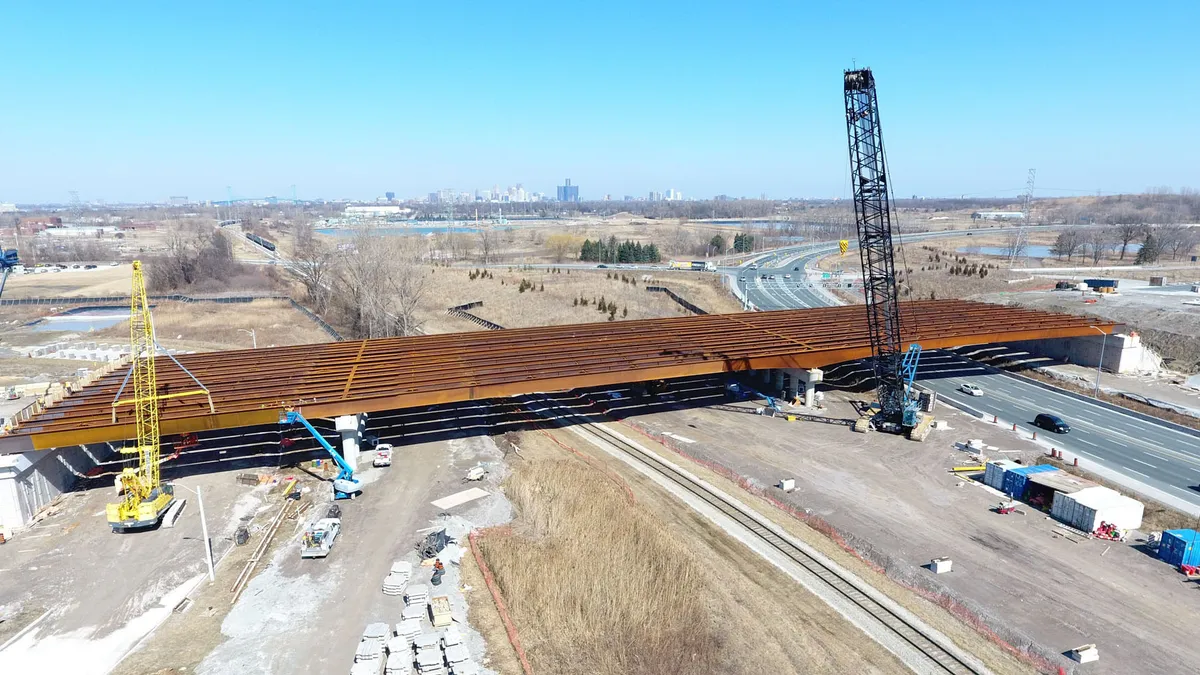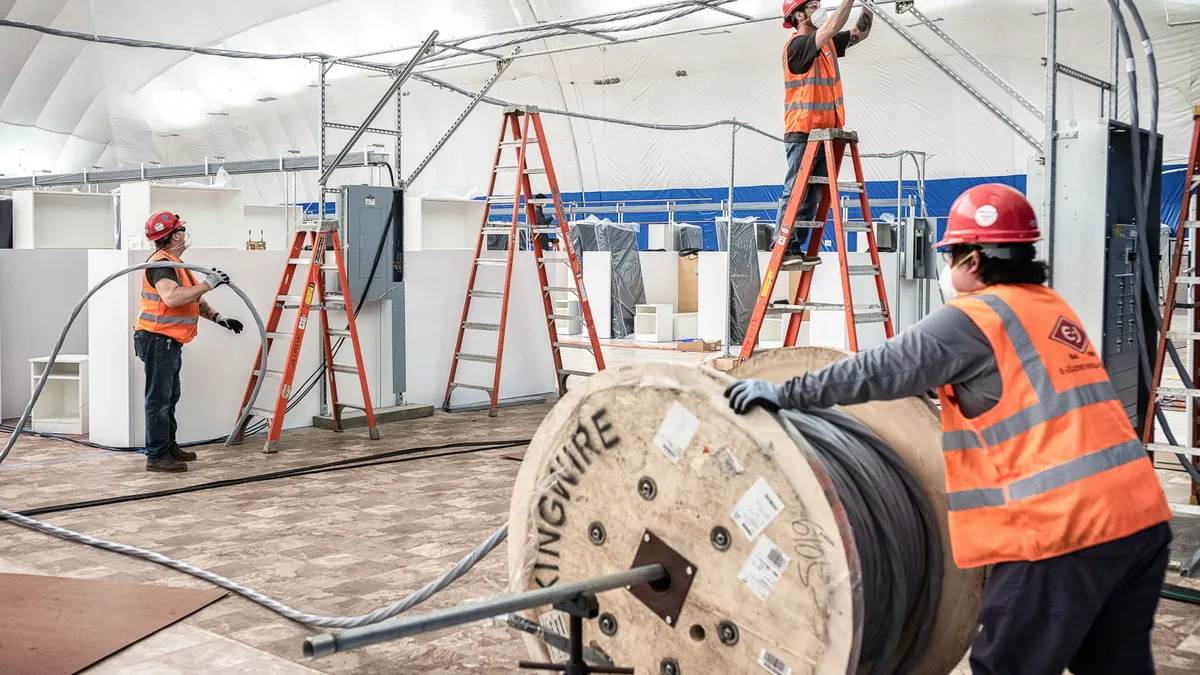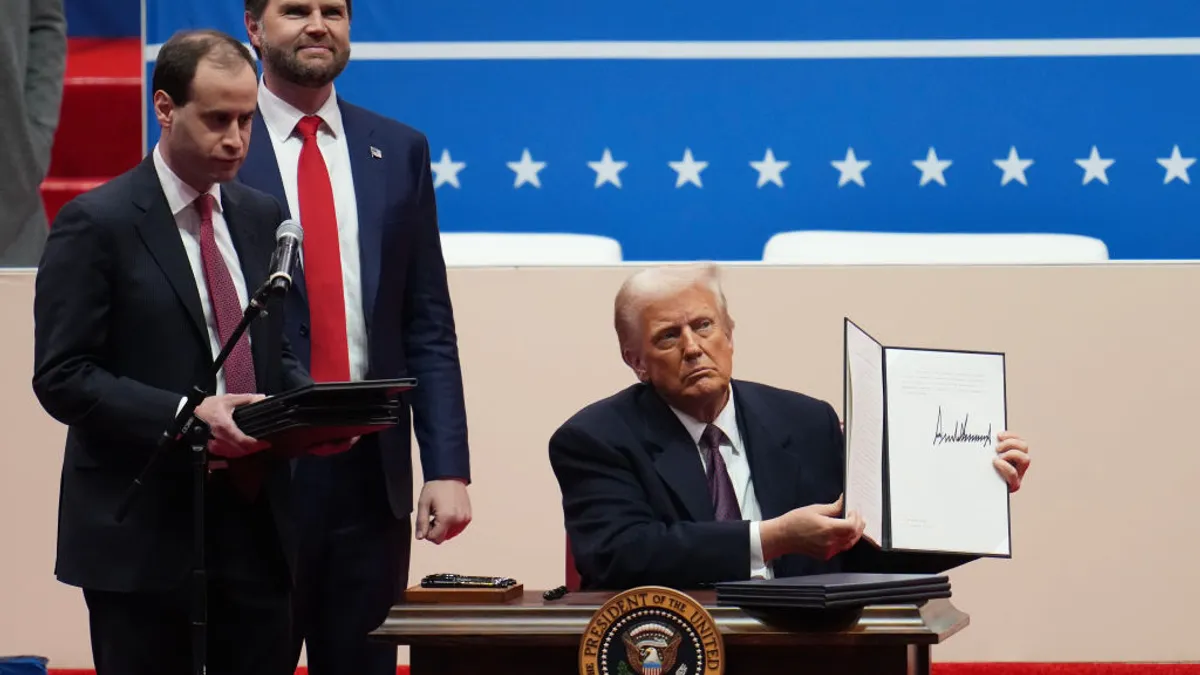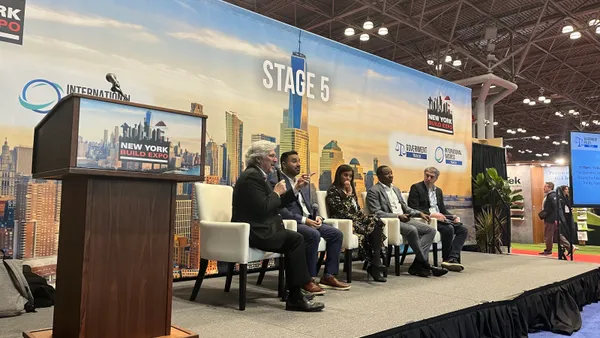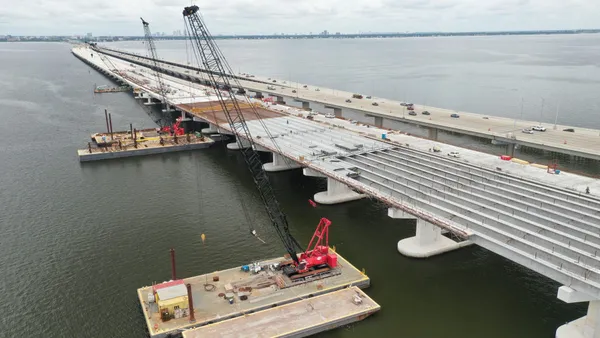Dive Brief:
-
Construction activity has increased on the Detroit side of the $2.9 billion U.S.-Canada Gordie Howe International Bridge, Crain's Detroit Business reported.
-
The public-private partnership (P3) in charge of construction, Bridging North America, told Crain's that demolition of existing structures is continuing along the city's riverfront where toll plazas will be built and that crews are drilling the test shafts that will help determine the final bridge design. Crews are also shoring up a seawall on the U.S. side, and Bridging North America has set up approximately 28,000 square feet of modular office space for field engineers and support staff who will work on the five-year project.
-
At least 40 Michigan companies already are working on the project — from contractors to service providers. Bridging North America plans to solicit bids for at least 10 to 15 more contracts in the next month for earthwork, demolition, concrete, traffic signs and management, surveying, temporary barriers and concrete pavement pumping stations.
Dive Insight:
Bridging North America — a consortium that includes ACS Infrastructure Canada, Fluor Canada and Dragados Canada — is planning a cable-stayed design for the six-lane bridge, as well as customs plazas and highway connections to roads in Canada and the U.S. The bridge will also include a multiuse path, 16 toll booths and 24 inspection booths.
The P3 anticipates additional operating costs of $1.5 billion during its 30-year maintenance term with the Windsor Detroit Bridge Authority. Canada is financing the project, and the U.S. is set to repay its bridge obligation through tolls it collects in Detroit.
Construction costs could have been higher had the U.S. government not given Canada a waiver from having to buy U.S. steel and iron for the project. This concession drew the ire of the Moroun family, which owns the existing U.S.-Canada Ambassador Bridge that the new bridge intended to replace. The Morouns characterized the administration's move as a violation of President Donald Trump's America First policy, which promotes the use of domestically produced materials for projects that receive federal aid.
The Morouns have been fighting to stop construction of the new, competing bridge and want to build an additional span to help alleviate traffic on their existing bridge, but they will have to demolish the Ambassador within five years of their new bridge's completion. The Ambassador currently handles approximately 27% of the $400 billion in annual trade between the U.S. and Canada.


